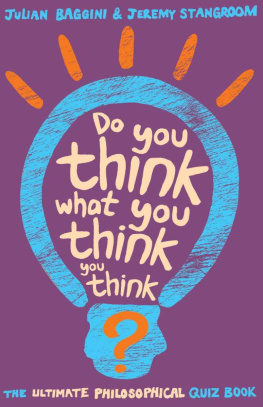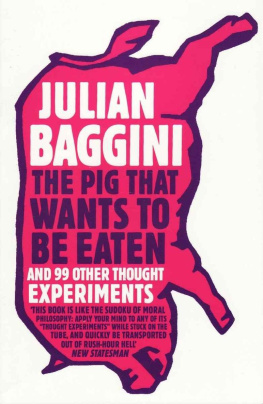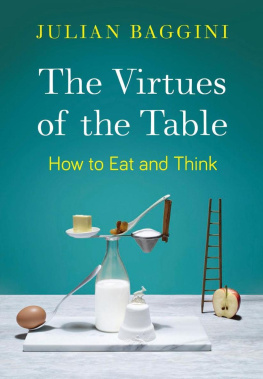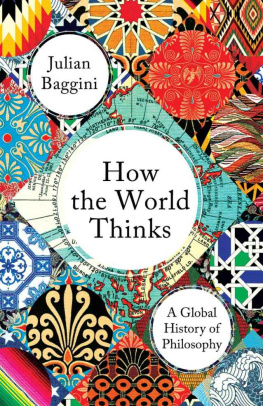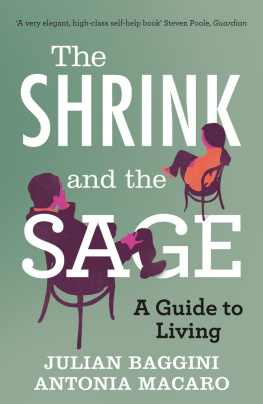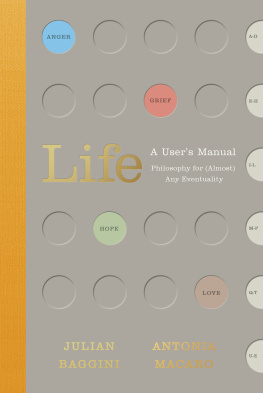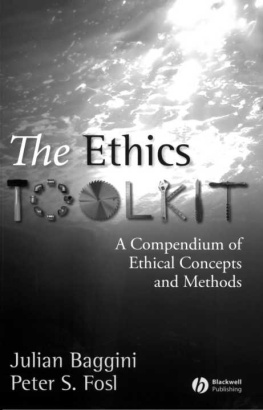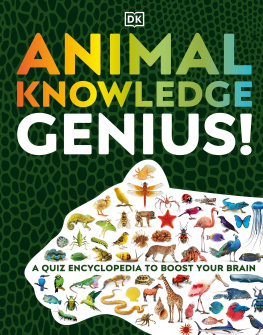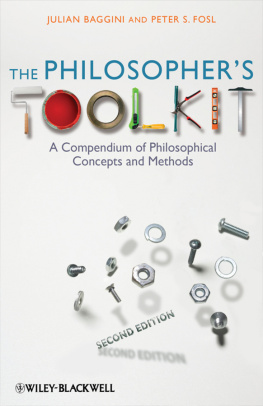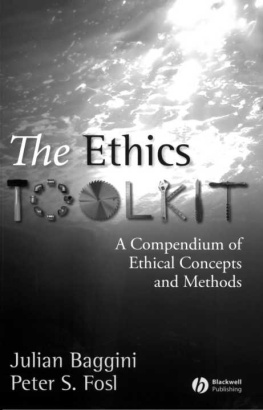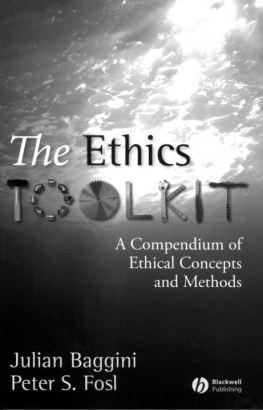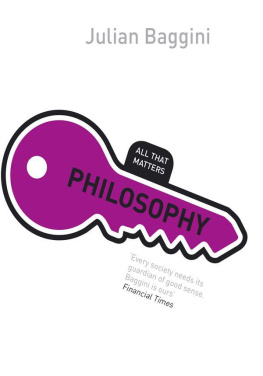Acknowledgements
Thanks to George Miller and Gail Lynch for supporting the idea of this book; TPM Online (www.philosophersnet.com) mailing list members for beta-testing many of the activities in their previous, online form; Ophelia Benson; and Sajidah Ahmad, Lesley Levene, Daphne Trotter, Joanna Macnamara for their thorough checking. Any mistakes that remain are entirely our responsibility.
The Philosophical Health Check is based on an original idea by Marilyn Mason.
So You Think Youre Logical? is inspired by original work by Peter Wason, Leda Cosmides and John Tooby.
The Do-It-Yourself Deity is based on an original idea by Jeremy Hayward and Gerald Jones, whose numerous books by Hodder Murray are strongly recommended, especially for teachers looking to introduce philosophical activities to the classroom.
Taboo is inspired largely by the work of Jonathan Haidt, Silvia Helena Koller and Maria G. Dias.
David Coopers Aesthetics: The Classic Readings (Blackwell) provided many of the sources for our summary of the major philosophical theories of art in Shakespeare vs. Britney Spears, and is highly recommended for those wishing to find out more about them.
This book emerged out of our work with The Philosophers Magazine , which has only survived with the support of numerous generous contributors and individuals such as Ophelia Benson, Denis Collins, Jonathan Derbyshire, Susan Dwyer, Simon Eassom, Peter Fosl, Wendy Grossman, Mathew Iredale, Michael LaBossiere, Jeff Mason, Scott McLemee, Christopher Norris and Christian Perring; as well, of course, as our readers.
Introduction
Know thyself.
Inscription at the Temple of Apollo in Delphi
Theres no doubting that Descartes was a pretty clever guy. But whether it was his fault or that of his acolytes, a lot of hopeless misconceptions about human nature can be traced back to him. Of all these, perhaps the greatest is the incorrigibility of the mental: the belief that we cannot be mistaken about the contents of our own minds. I think I feel pain, so I do feel pain, and theres no way I can be mistaken about that. If I can see an elephant, then I may be hallucinating and there is no elephant there, but nonetheless, it has to be true that I am having the experience of seeing an elephant. If your coat looks yellow to me, the fact that it is really green doesnt change the fact that it looks yellow to me.
But the simple truth is that we can be horribly, tragically, painfully wrong about what is in our heads. Just think of the kinds of things people say all the time. I thought I was in love, but really it was just lust. I thought I had indigestion but actually I was pregnant. I thought I believed in socialism but when I saw my tax bill I realized that I didnt. I thought I didnt want my children to be different, but actually I wanted them to change so I could be closer to them. I thought I enjoyed working long hours but really I was kidding myself and I was just avoiding issues in my personal life. I thought I was being honest but actually I was holding back crucial information and deceiving him.
What we really think is an incredibly difficult area. The purpose of this book is to provide you with some entertaining ways of thinking about what and how you think, and to reveal some surprising things about both. By the end of it, we think you may well find yourself thinking that what you think you think is no longer what you thought you thought. And like that last sentence, that may be disconcerting, a little confusing, but actually quite good fun.
Visit this books website at www.doyouthinkwhatyouthink.com.
How to use this book
| Grab a pen or a pencil. A pencil is good for you , because it means you can always erase your answers and use the book again yourself, or pass it on to others. (A pen is good for us because you cant, so if you do enjoy it, youll have to buy more copies.) |
| Dont be defensive. Be prepared to be wrong and also to argue back if you disagree with us. But not in emails, phone calls or heckles in public places, please. |
| Go through each activity slowly and carefully. There is nothing so complicated that a bright child couldnt follow it, but if you rush or skip steps, youll end up more confused than an atheist finding himself at the pearly gates with Margaret Thatcher standing guard only letting in Orthodox Greeks. |
| Dont worry about whether this book is serious or not. To do so is to worry about a bogus distinction. As Wittgenstein said A serious and good philosophical work could be written consisting entirely of jokes. Or, in this case, games. |
The Philosophical Health Check
I have opinions of my own strong opinions but I dont always agree with them.
George W. Bush
Clint Eastwood once memorably said, Opinions are like assholes everybody has one. With our own beliefs, however, we do not wish our viewpoints to resemble any part or function of rectums in any other way. Other peoples views may be foolish, ill-considered, naive or wicked, but our own are considered, intelligent and well worth listening to.
Well, perhaps. The purpose of the Philosophical Health Check, however, is not to tell you which of your opinions are true and which are false. What it will do is reveal something about how well youve thought them through. To push Eastwoods metaphor further than it is perhaps decent to do, well find out if your opinions are like two well-toned buttocks or a flabby backside.
Take the check
To take the Philosophical Health Check, go through the statements below, deciding for each one whether you agree or disagree. At this stage it is important that you simply mark your answers as you go along or jot them onto a piece of paper. Do not look at the marking grid or analysis which follows until you have answered the questions.
We know that you will not always agree or disagree 100%, but almost always you will tend more towards one answer than the other. If youre not sure, select the response which is closest to your opinion. If you really have no opinion at all, its time you got one!
The Philosophical Health Check does not judge whether your responses are right or wrong, so answer as honestly as you can. Every statement is carefully worded, so pay attention to what each one actually says.
| Agree | Disagree |
There are no objective moral standards; moral judgements are merely an expression of the values of particular cultures. |
So long as they do not harm others, individuals should be free to pursue their own ends. |
People should not travel by car if they can walk, cycle or take a train instead. |
It is always wrong to take another persons life. |
The right to life is so fundamental that financial considerations are irrelevant in any effort to save lives. |
Voluntary euthanasia should remain illegal. |

